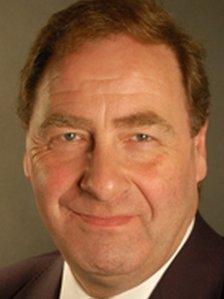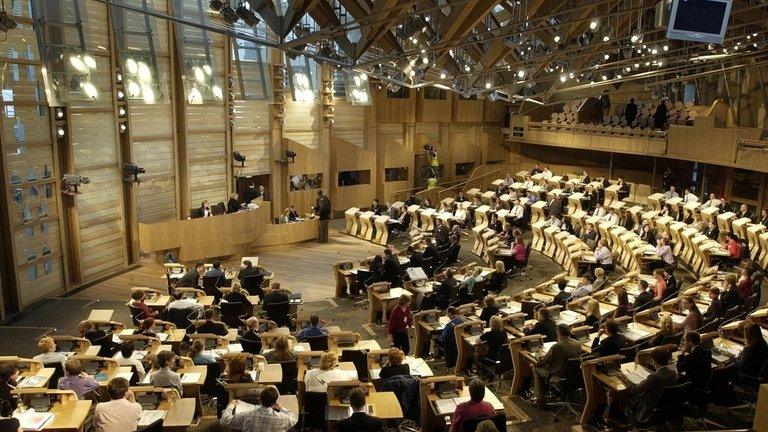Catching up on the Big Debates
- Published
I write this gazing out over Bressay Sound towards the isle of Bressay. The Y is silent in each case - an admirable precedent which both politicians and pundits might do well to emulate on occasion.
You ask why? Other than the joy of so gazing, I am in Lerwick to present my weekly wireless programme, the Big Debate, tomorrow, noon on BBC Radio Scotland, in Lerwick Museum (end of plug).
But the magnificent resources of my employer have enabled me, here in BBC Radio Shetland (to whom all praise and gratitude), to catch up with events at Holyrood.
Online, I have had a glance at the details of John Swinney's statement anent taxation. Through the glories of Democracy Live, external, I have witnessed the session of questions to the First Minister.
Re the FM, he did rather better today, I thought, than last week despite or perhaps because he was addressing comparable questioning, particularly from Johann Lamont.
Ms Lamont again pursued the issue of the currency under independence. Her argument was that, should Mr Salmond have his way, Scotland would have less influence over currency matters than at present because the retained pound sterling would continue to be directed by the Bank of England.
However, to make that point, she was obliged to argue that the Bank worked within the ambit of financial targets set out by the Chancellor. For years, she said, Number 11 Downing Street had been occupied by Scots, ensuring that a distinctly Scottish voice was heard in the economic counsels of the UK.
In response, Mr Salmond argued that implied that Ms Lamont was content for George Osborne to be directing matters, as the current Chancellor.
Naturally, she would demur. The FM's point was that his opponent was relying upon a UK structure which might send a Labour Scot to the Treasury - or, as at present, an English Tory.
He argued further that Scotland had zero influence at present. Scotland, he calculated, could not have less than zero influence. That sum, he suggested, would not compute.
Devolving tax
To Mr Swinney. As is now common, his statement contained an immediate and a provisional purpose.
The immediate one was to indicate how the Scottish Government proposes to use taxation powers, devolved via the Scotland Act, over Stamp Duty Land Tax and over the disposal of waste to landfill.

Iain McMillan of CBI Scotland commented on Mr Swinney's statement
Mr Swinney announced he favoured two new replacement taxes, tailored, he said, to Scottish requirements. Collection and admin would be shifted to a new body, Revenue Scotland.
The provisional purpose, of course, was featured in a parallel comment from the SNP to the effect that so much more could be done with - you've guessed it - independence.
On the taxes, I was intrigued by a comment from CBI Scotland. They broadly welcomed the announcement - particularly the ambition signalled by Mr Swinney to cut the costs of collection.
Iain McMillan of CBI Scotland played a key role on the Calman Commission which drafted the proposals which ended ultimately in the Scotland Act - and today's announcement.
Mr McMillan goes on to note that, when the Scottish rate of income tax is devolved in 2016, it will be important to retain HM Revenue and Customs in order to maintain the integration of the UK tax system.
Of course, Mr Swinney would dissent from that. The Calmanites see the tax devolution package as involving reform but a consolidation of UK finances. The Nationalists intend that today's announcement forms the foundation of an independent tax system. A referendum anyone?
PS: On the flight up to Shetland today, the very welcome onboard catering comprised tea and a caramel wafer. Just like Bute House, in fact.
PPS: In Shetland tonight, the big islands talking points are mostly concerned with different forms of transit - proposed changes to ferry services and the imminent arrival of the Olympic torch.
- Published7 June 2012

- Published7 June 2012
